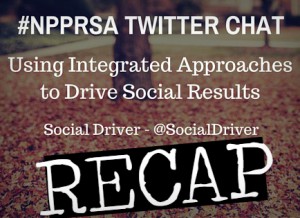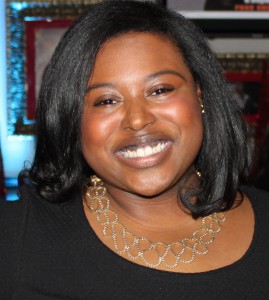It’s your first day at your new job and you are feeling a lot of pressure. What do you wear? How do you act? Do you go around talking to everyone or do you stay behind your computer screen and starting knocking out all of the press releases that were assigned?
We’ve all been there. Being in the workplace as a new graduate is thrilling, yet overwhelming. You no longer get to rely on excuses, but rather are required to give your best each and every day, all while being a team player. WHEW!
 How do you accomplish fitting in and knowing how to act? Follow these four tips that will surely make you a part of the team and not just the “new” person.
How do you accomplish fitting in and knowing how to act? Follow these four tips that will surely make you a part of the team and not just the “new” person.
- If the coffee pot is low, fill it up
If you know anything about public relations, you know that professionals need their coffee. Between juggling demanding clients and extinguishing the flame in a recent crisis, their veins are filled with caffeine. If you notice that the coffee is getting low, replenish it. Be a team player – even if you don’t drink it. Most likely though, three cups a day will eventually be the norm for you.
- Always say “Good Morning”
I know that not everyone is born a natural extrovert, but that doesn’t mean you have to be a hermit. Even though it may be awkward at first, say good morning when passing by desks. I promise you that your colleagues will not bite you. The best way to fit in is to engage in conversations and possess a positive attitude. I, by all means, am not trying to stereotype communications professionals, but you should be able to communicate and engage with others easily.
- Participate
Whether it be a brainstorm session or drinks after work, get involved. To be a team player means you need to be a part of a team. You were hired for a reason, so join in on the fun. A lot of agencies will have monthly meetings or webinars that you can benefit from. You should always go to those. Continuing to learn is the continuation of success. It also doesn’t hurt that you have the opportunity to make new friends who have similar interests.
- Treat the company like it is your own
I don’t advise acting like you own the company, but rather be a great representation about what your company stands for. Whether that is your presence on social media, greeting clients as they are in the waiting room, or even picking up trash around the office – act as if the company is your own. It also doesn’t hurt to have the mindset that you are working like the CEO. A CEO is usually putting in extra hours, so it may be nice every once in a while to switch up your morning routine and pop into the office early to start cranking out work.
Even though a few of these tips may seem silly, they are practical and will get you more comfortable in your new setting. There aren’t etiquette books for new employees, but it’s always said that the little things matter. The two biggest things that everything contributes back to are your attitude and effort. Once those are in line – your work and friendships will start to bloom.
—
 Aside from stalking the latest fashion trends and blogging about the best shoes to buy, Katie Wenclewicz enjoys everything and anything media relations. Katie graduated from Anderson University with a bachelor’s degree in public relations and marketing. Currently residing in Indianapolis, Indiana, Katie is a publicist at Bohlsen Group. From heading national campaigns to staying active in the Hoosier PRSA chapter, she is a valuable PR tool for young professionals. Connect with Katie on Twitter or LinkedIn.
Aside from stalking the latest fashion trends and blogging about the best shoes to buy, Katie Wenclewicz enjoys everything and anything media relations. Katie graduated from Anderson University with a bachelor’s degree in public relations and marketing. Currently residing in Indianapolis, Indiana, Katie is a publicist at Bohlsen Group. From heading national campaigns to staying active in the Hoosier PRSA chapter, she is a valuable PR tool for young professionals. Connect with Katie on Twitter or LinkedIn.








